How can we designers improve and implement a secure, compliant payment feature in existing financial user journeys for our commercial customers without harming the current experience?
Taking responsibility for the team and the overall proposition is the key to success.

This proposition defines three areas of expertise. First – translate existing code to new MCA (Modular Cloud Architecture) code-base. Second – update all components to the new Constellation Design System. Third – cooperating and validating a new design model across the central and peripheral teams.
This was a practical illustration showing that collaboration between three disparate parts of the business can bring significant value to our Lloyds Bank customers.
Design operation plays a vital role in the overall product delivery and proved to be indefectible in speed to integrate FCA regulation across all our commercial products.

Theory
SCA Functionality
Explained.

Details
Strong Customer Authentication (SCA) is a form of two-factor authentication designed to identify customers using specific rules around what constitutes ‘authentication’.
SCA is part of the second Payment Services Directive (PSD2), designed by the European Union. It revolutionised the payments industry, affecting everything from the way we pay online to what information we see when making a payment.


Theory
SCA and
Triple ‘A’.
AAA is a term used concerning information and online security. It refers to the following:
Authentication

the process of verifying an individual or agent is who they claim to be
Authorisation

the process of verifying the individual or agent has the right to access a given service or information
Accounting

(sometimes referred to as ‘audit’) - the process of capturing all interactions an individual or agent has with protected services or information


Approach
General Principle
of Authentication.

Detail
The authentication principle is based on the premise of user situation and interaction.
Something I …

Design Principles
The Experience Strategy
and Behavioural Principles.

Aspiration
Setting robust Experience Design Principles helps us align thinking and action across the different teams objectively. These are progressive principles that drive, measure and educate the team across a wide range of touchpoints.
01
Simplicity & Accessibility

Keep it simple and easy.
02
Onboarding & Education

Guide me towards autonomy.
03
Context & Intelligence

Empower my confidence.
04
Ownership & Security

Manage my risk.

Result
While introducing a new authentication infrastructure, out team have to create a persistent and accessible history of all interactions alongside building a customer profile repository.
Categorised impacted journeys across all channels and identified effective authentication methods that suit all possible 83 user scenarios.


Impact
The Proposition
Implementation Principle.


Why
Digital
Self-Serve.
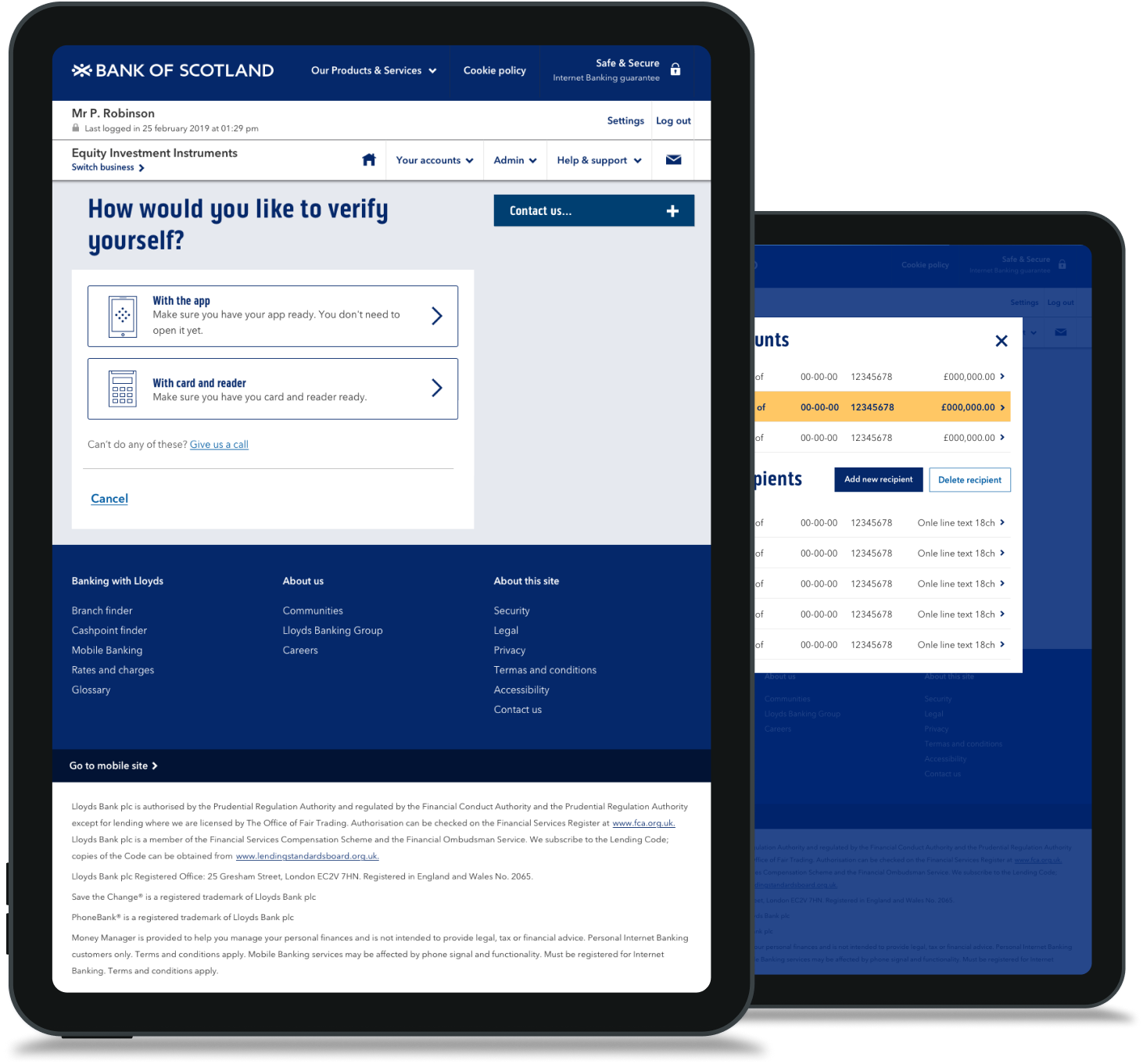

Challenge
To integrate the proposition across 30+ active Commercial Banking journeys, we had to find a way of aligning all components in one single ecosystem. To bring the team up to speed, we had to synchronise our thinking and expectation from delivery. "The Power of One" helped us establish one language, one location, one team, and one product– philosophy for all 2k+ financial components.
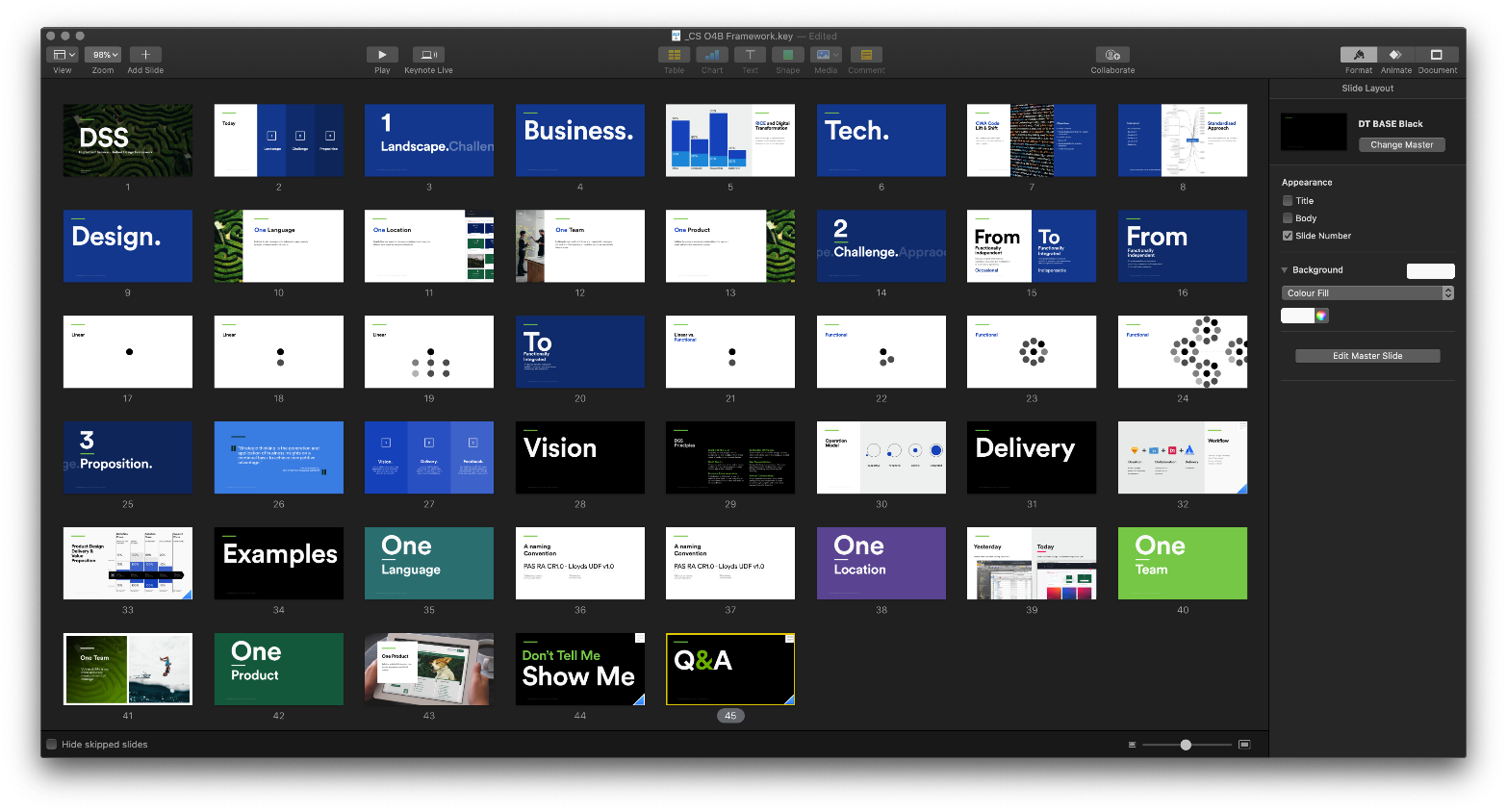

Feature
Fast
Payments.

Approach
Fast payments became the first journey we tested with our propositions. The front-end team quickly replicated the current user-journeys, and from this, we started extracting the necessary information crucial to our future design challenges.
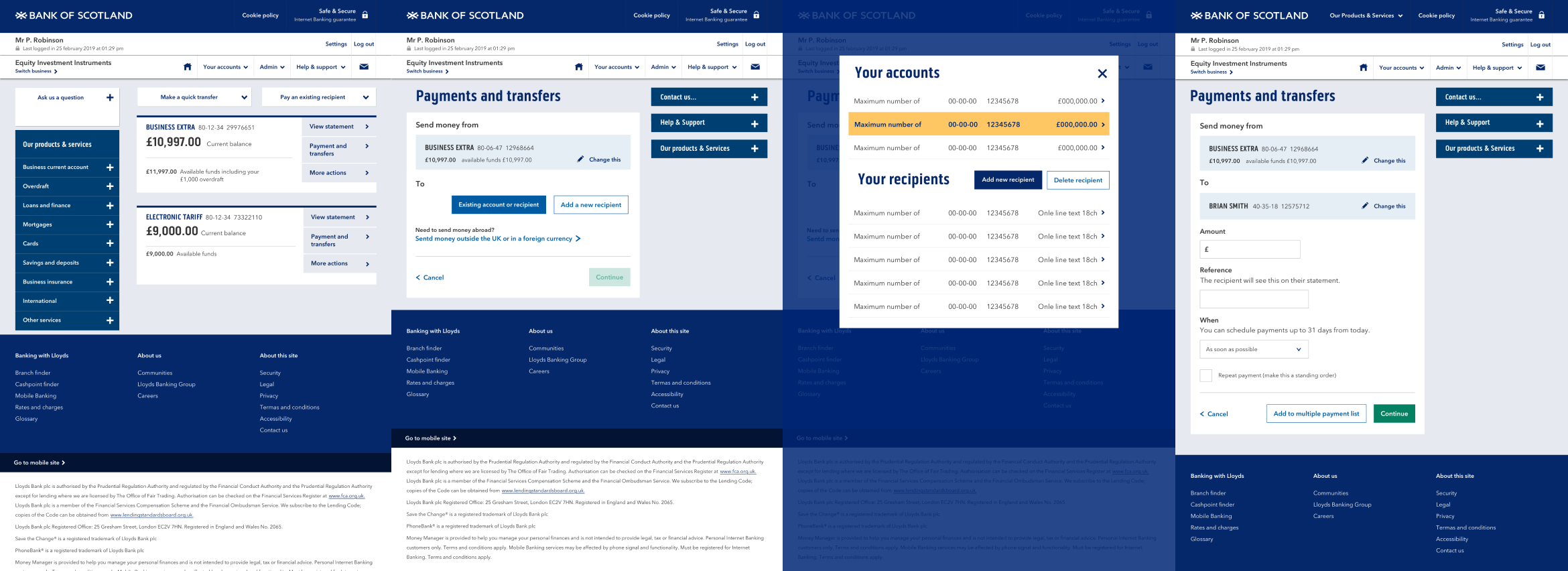


Feature
New and Existing
Beneficiaries.

Experience
First, we separated beneficiary journeys (new and existing). This way, we knew where the SCA integration should appear.

Result
The Unified Design Framework (UDF) team helped us standardise the proposition and bring all our 30+ scenarios into one visual ecosystem. With the help of our central UDF team, we sped up our design delivery by approximately 37%.


Component Library
The overlays interaction and decision making.
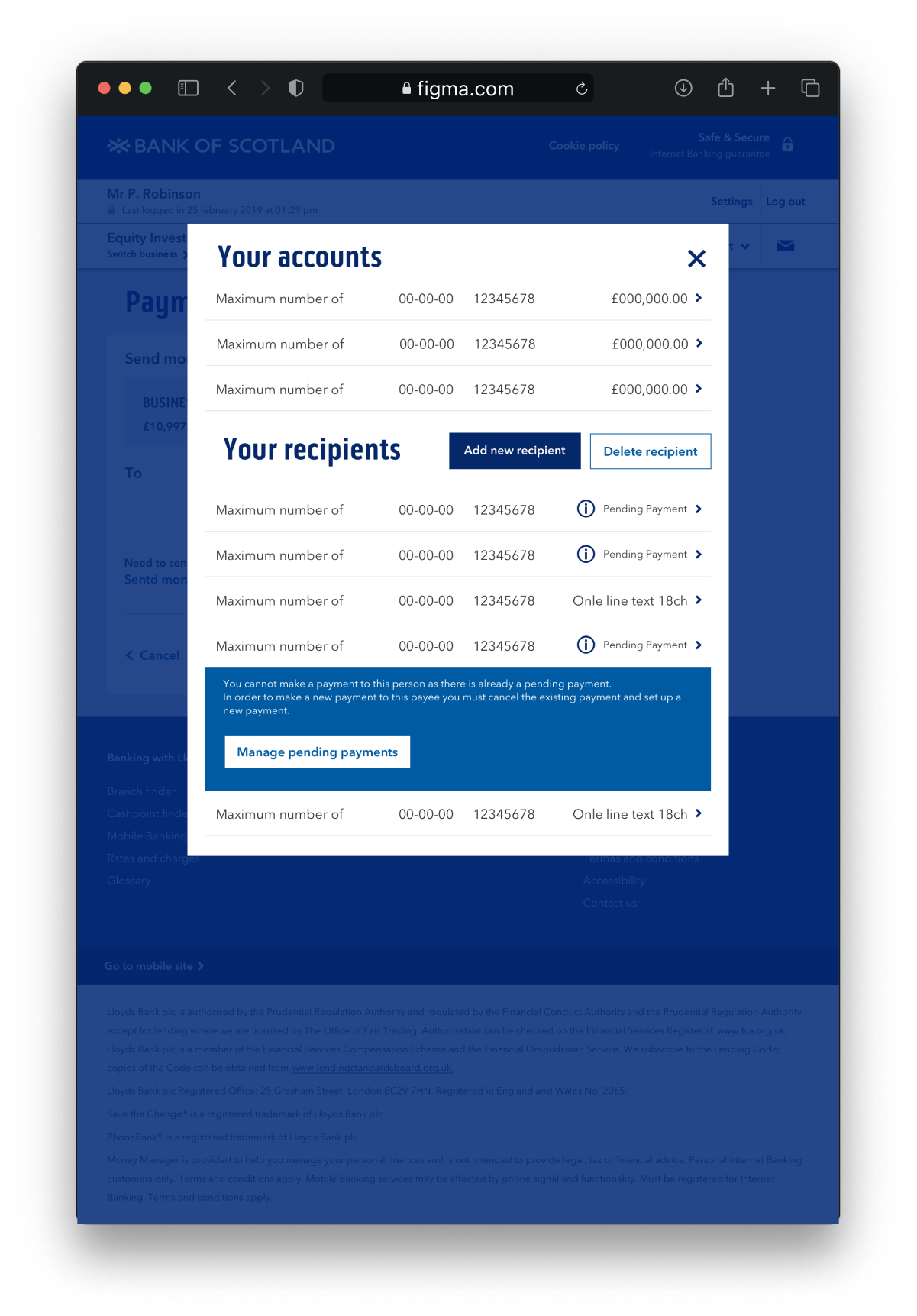

Impact
Managing a significant amount of data in an overlay has an impact on how the data going to be handled. Our team had to drastically optimise our components so that we can concentrate on loading customer information instead of fancy UI.
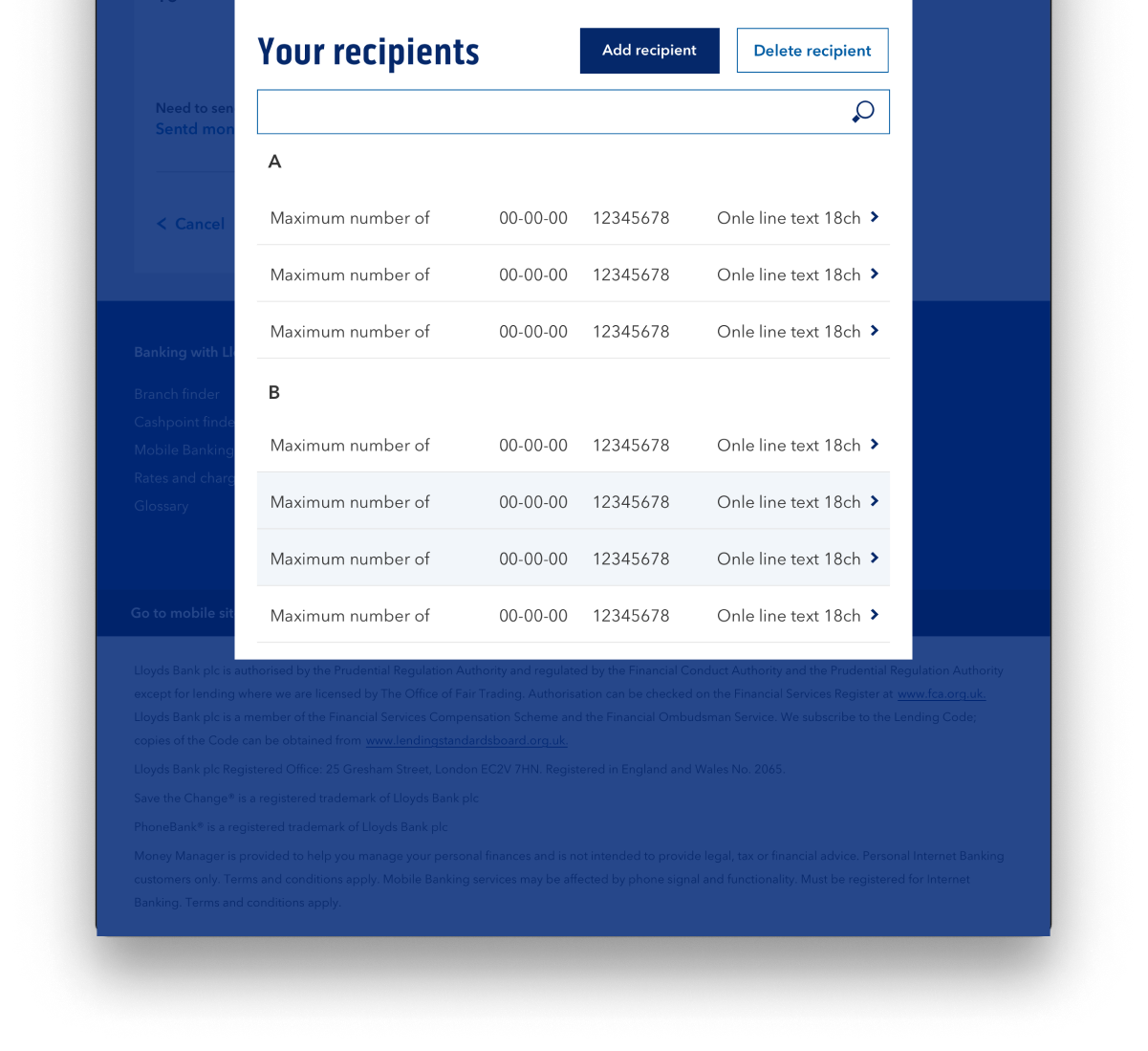
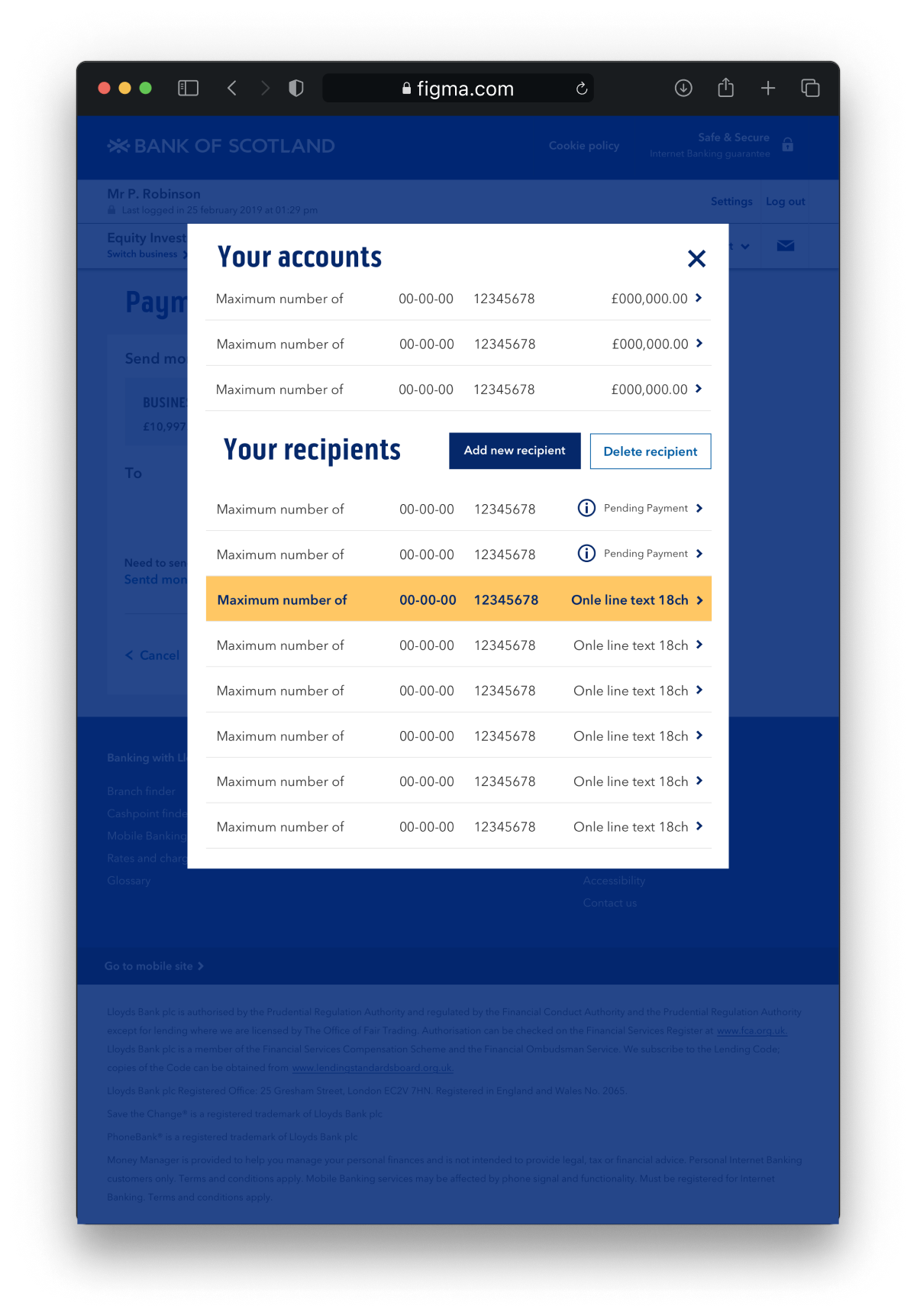

Constellation
Constellation in this respect helped us to set the basics and our contribution brought a simplified complexity that Constellation lacked. By collaborating we bright the best of both teams together – a robust design ecosystem and well functioning product that can scale at any time.
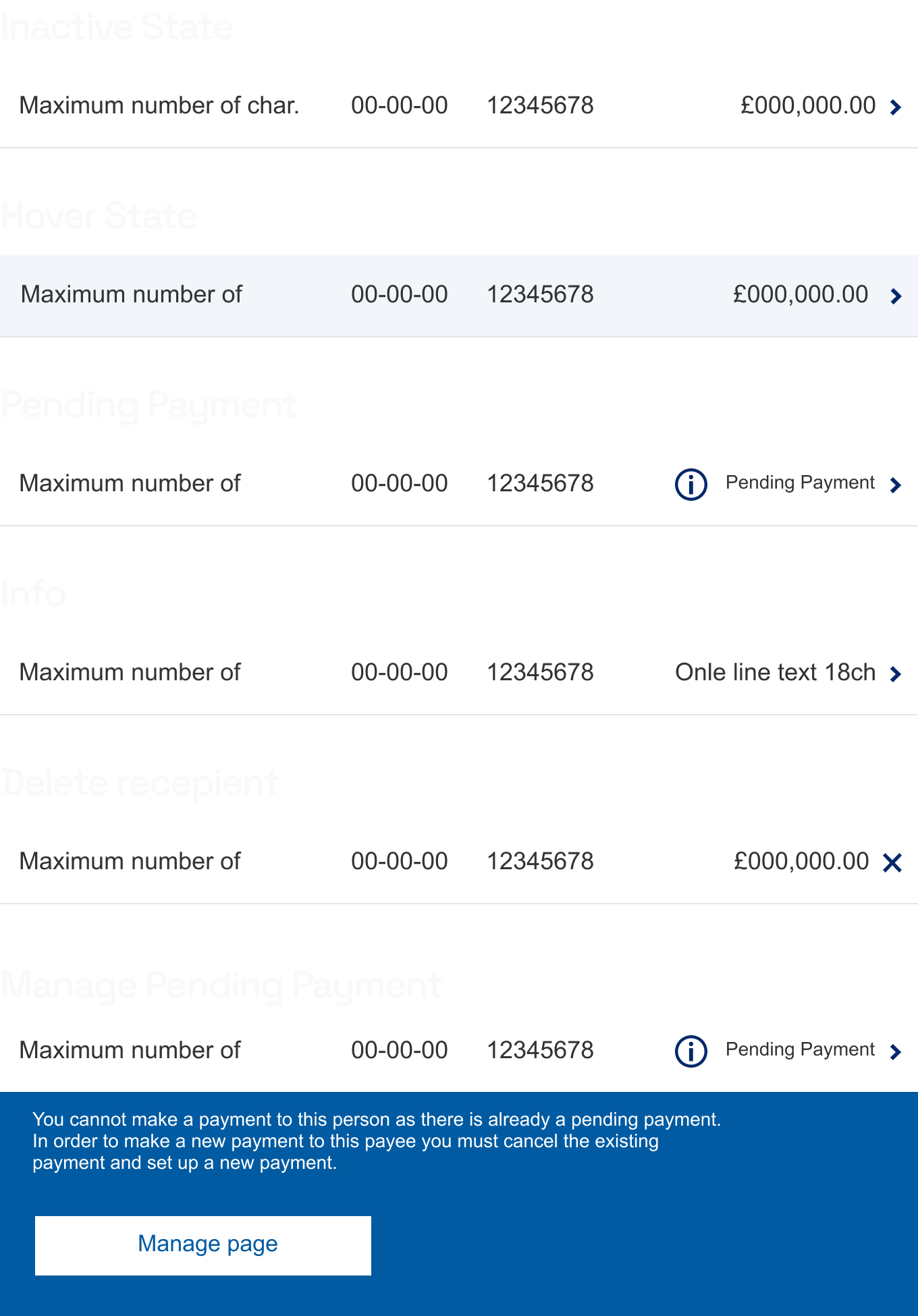

Tribal Leadrship
The following components board shows a fraction of our design framework. Once the basics were established we can move on to variants and specific scenarios.
By constructing details this way both teams can work in tandem and gain the advantage of supporting each other with the design outputs.

Feature
Multi
Payments.

Approach
Multi Payments was the oldest feature in the system. That’s why it needed to be worked from the ground up.
The current state compress the data in the lefthand column, and the user had difficulties understanding the interaction flow. After several prototypes and testing with the development team, we agreed on a proposition. We have saved 20% of the budget and three weeks of time for our customers by speeding up the journey release by 2 months.
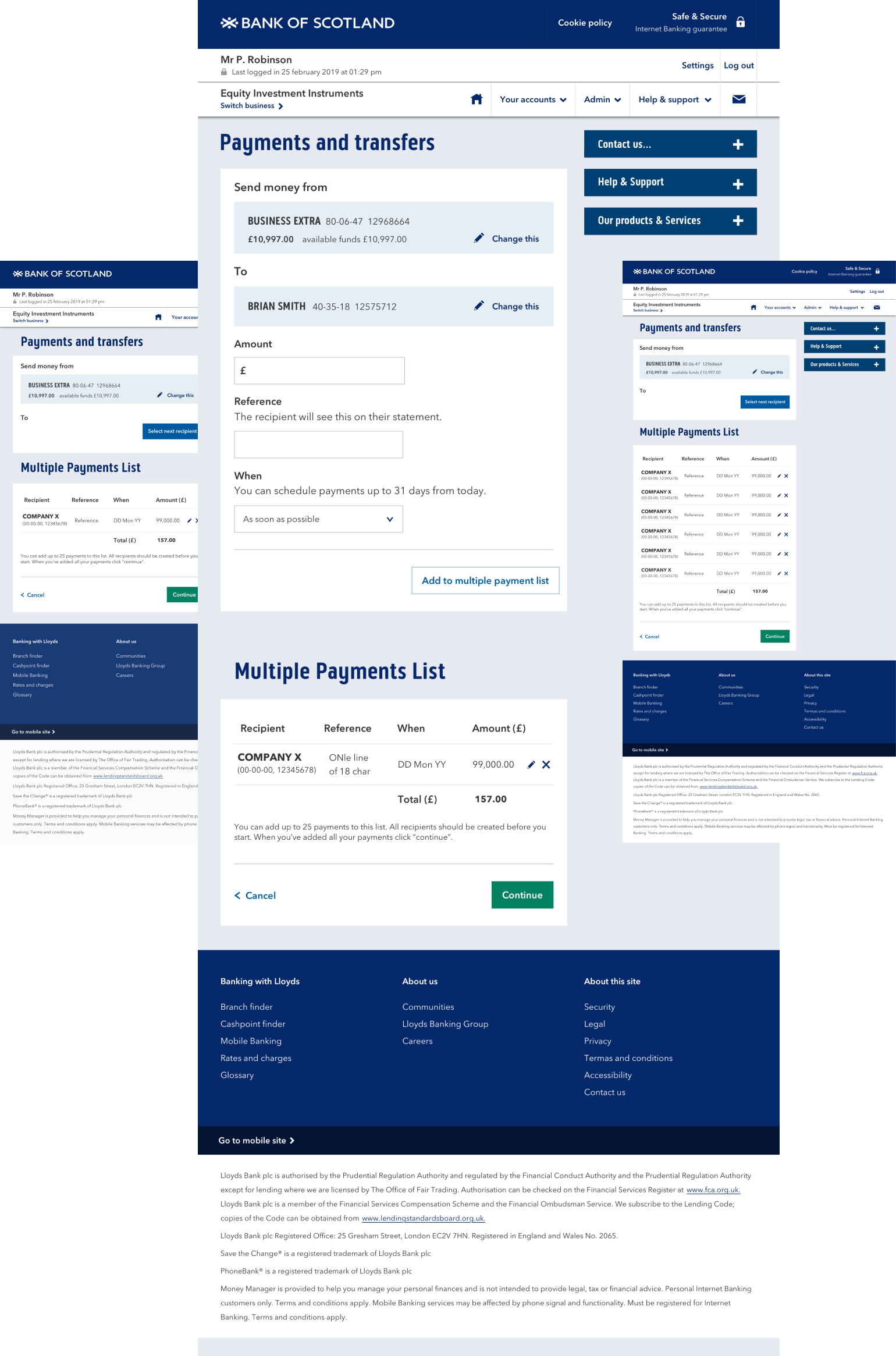


Feature
Standing
Orders.

Approach
Standing orders are one of the most common financial features used by banking. against industry-standard out team proved to give the best experience for Standing Orders through extensive customer testing and ongoing validation.
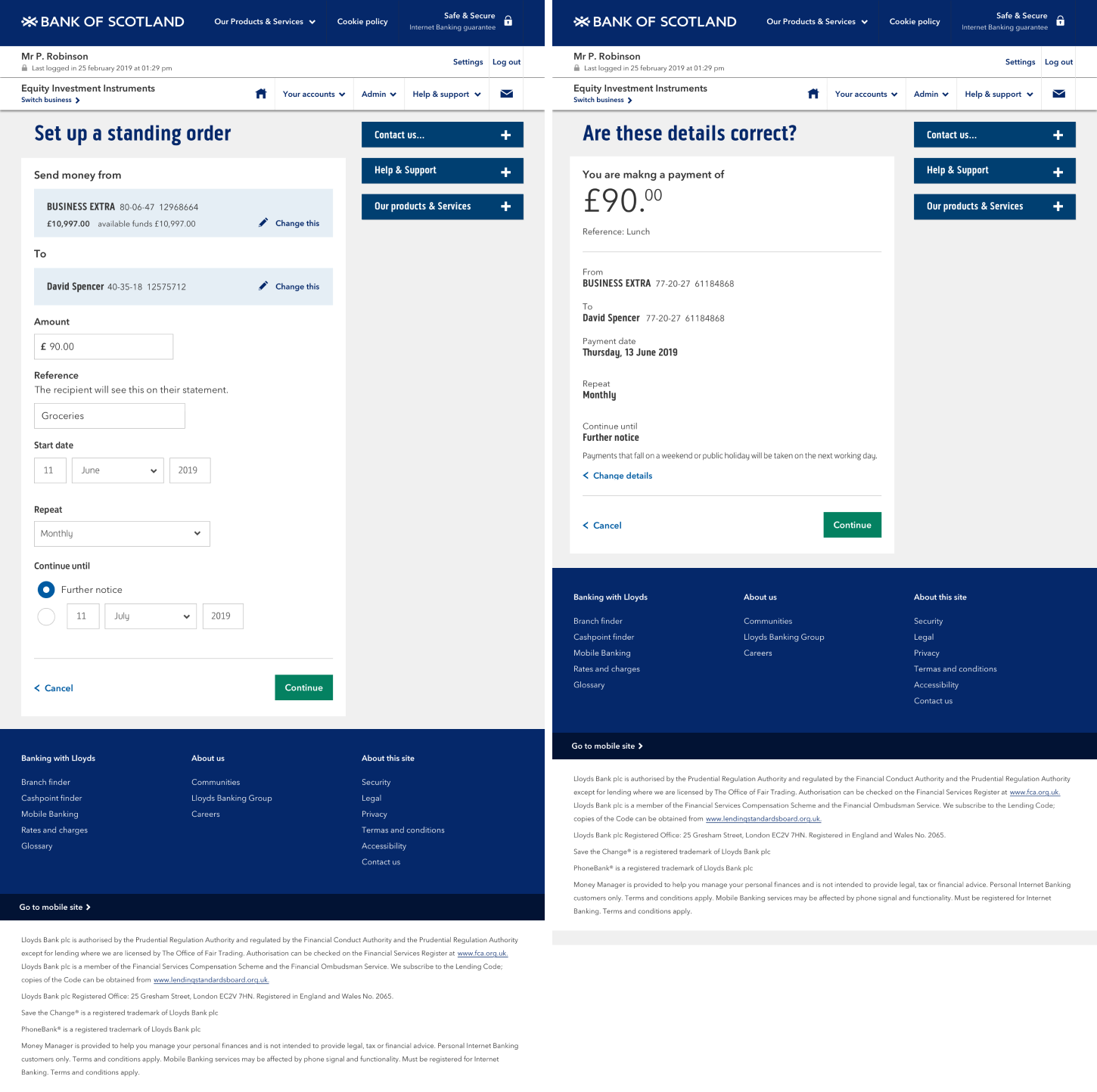



Why
Product Design Delivery at Scale.


Method
Design
Methods.
2000 - 2022

Confluence
The Customer Experience team together with talented BAs created Design Hubs where we shared all information. The hubs allowed us to collect our High-Level Requirements (HLRs), User Acceptance Criteria (UAC), System-Level Requirements (SLRs), as well as the design prototypes and all their iterations. An easily trackable and sharable environment allowed us to move faster and smarter.



Jira
Atlassian's JIRA helped me organise work across the three teams and 30+ projects. Together with CSM® and powerful Jira Query Language (JQL), we created dashboards that operated and informed stakeholders about the current situation, velocity and how we were delivering value to the business.


People
SCA Product Team.
2018-2019


Mike I.
CPO®


Lucy Mc.
Programme Lead


Rahul G.
Delivery Lead


Shiva K.
Lead Engineer


Jiri M.
CX Lead


James R.
Programme CPO®


Alex K.
Copy Lead


Prashant P.
BA Lead


Nicolas Ch.
UI Designer


Adrian J.
Senior UI Designer


Cristine V.
Copywriter


Narayanan P.
QA Lead

Impact
Impact of the design and Design Ops. on the Product Delivery.
Overall
Budget.

5m
The overall budget estimated with teams involved in FCA integration related to strong customer authentication in Commercial Servicing
DaS™ saved across
the proposition.

390k
DaS™ implementation saved on operational and management costs as we don’t need to spend the time on additional reporting due to automate data management and team integration across the transformation programme.
Impact on
the business.

7,8%
Overall saving of the project, including team cost, operation, development and integration, was exactly 7.8%
* All my teams operate on a simple family model. Across the multicultural and multidiscipline teams, we all have families and understand our roles – translating that correctly to the team makes a significant difference to the tribe and their outcomes.
To a tailored list of meaningful snippets that help design
leaders manage their daily challenges at scale.
All brands and trademarks presented on Design at Scale™ website are owned by their relevant companies or agencies. The projects represent collaborations between designers, developers and product owners. Do not copy or publish any of the projects shown here without writen approval from Design at Scale™ (alternatively GIVE™, 9V™) and/or relevant companies and agencies.

